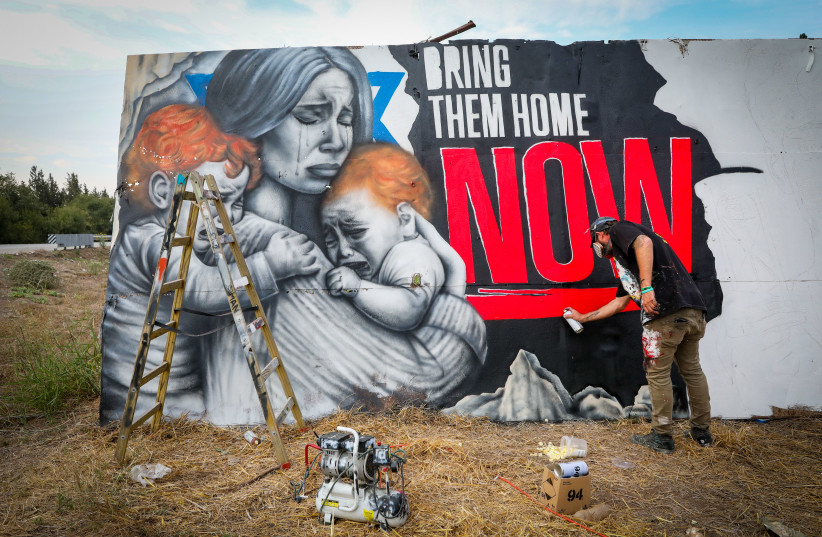Tuesday night, Israel’s government issued a statement indicating its approval of a deal for releasing some of the hostages. According to the statement, the deal includes:
A four-day pause in the fighting.
Hamas's release of at least 50 abducted women and children over those four days.

Other reports suggest that additional aspects of the deal include:
Israel will not conduct surveillance over Gaza for a six-hour period each day.
More humanitarian aid, including fuel, will be permitted to enter Gaza.
The fifty Israeli citizens to be released include 30 children, 8 mothers, and 12 other women—leaving 10 children in captivity.
Israel will release 150 Palestinian women and children—none of whom have been directly involved in terror attacks leading to fatalities.
Additionally, Hamas might release hostages with Thai citizenship, and other governments may negotiate to free their citizens.
Gazans who fled south will not be permitted to return to northern Gaza during the pause.
Hamas will give the Red Cross access to those abductees remaining in Gaza and permit the Red Cross to supply the abductees with medicine.
If this unprecedented event happens, an army on the march to victory will have risked certain success by pausing its offensive purely for humanitarian reasons. To help internalize the issues and future concerns, below are many of the pros and cons of Israel pausing its offensive in Gaza.
**Positives:**
- Every hostage released is a life saved.
- If the Red Cross gains access to the abductees, it can identify them by name and record their medical status, making it more difficult for Hamas to later harm them.
- Debriefing released hostages might provide Israel with information on the location and movement of the remaining hostages.
- A delay might permit the establishment of temporary camps, providing safety for noncombatant Gazans and an opportunity to bring more humanitarian supplies and services to them.
- IDF soldiers will be able to rest and resupply.
**Perils:**
- Releasing some hostages might imperil the remaining hostages, as it could release pressure on Hamas, potentially lengthening the stay for the remaining hostages.
- The cost of securing future hostage releases might increase, as Hamas may demand a higher price for their release.
- Restarting the offensive might be challenging due to international pressure on Israel.
- More IDF soldiers might die because of a pause, as Hamas could improve its defenses during this time.
- A pause might further damage Israel’s economy, causing a delay in prosecuting the war and resulting in millions in lost economic activity.
- Hamas might selectively violate the terms of the pause, using Israel’s response to cease hostage releases and vilify Israel.
- Hamas could siphon off humanitarian supplies for its own benefit.
- Pressure might mount for further pauses, especially from nations whose civilians are still held hostage.
**Unknowns:**
- The actions of Hezbollah, Iran, and its proxy, the Houthis, during a pause are uncertain.
- The situation along Israel’s border with Syria is unknown.
- The impact of public opinion in Muslim countries on their governments' actions is uncertain.
If this deal happens, much more will follow. Hopefully good, but very possibly bad. And if bad, we will be called upon to fight the information war to follow—a war that I fear will be even worse than the one we are already experiencing. Get ready.
